محکم جمہوریت کےلئے عورتوں کی بااختیاری اور اُن کی قیادت
 WELDD strengthens women’s leadership by advancing equal rights and opportunities for women and girls, building the leadership capacity of at least 1500 women in at least 10 countries in Asia, Africa, and the Middle East. Towards this goal, WELDD partners are collaborating on a range of activities from the local to national and international platforms under its four thematic areas.
WELDD strengthens women’s leadership by advancing equal rights and opportunities for women and girls, building the leadership capacity of at least 1500 women in at least 10 countries in Asia, Africa, and the Middle East. Towards this goal, WELDD partners are collaborating on a range of activities from the local to national and international platforms under its four thematic areas.
Public and Political Participation
1,500 women leaders advocating gender equality
The primary goal under this Outcome is: ‘By 2015, at least 1500 strengthened women leaders advocating gender-equitable, pluralistic societies and states in at least 12 countries in Asia, Africa and the Middle East with reinforced alliances and networks within and across national borders reach at least 100,000 people.’ In particular activities under this Outcome will develop women’s political participation in countries such as Pakistan, Indonesia, Sri Lanka, Afghanistan, Thailand, Niger, Nigeria, Sudan, Senegal, Egypt, Syria, Libya, Iraq and Tunisia. A series of workshops are being held and modalities for mentoring deployed, across Asia, the Middle East, and Africa, to support and build the capacity of a new generation of feminist activists in the regions. A key aspect is to enhance conceptual and technical knowledge, boost critical thinking and reinforce abilities to analyse and strategise in the context of activism.
Peace and Security
175 women influencing peace and reconstruction
This Outcome focuses on enhancing women’s participation in peace processes and forums with the goal: ‘By 2015, at least 175 women contribute to and influence peace and reconstruction efforts in at least five countries.’ Key concerns about peace, stability and security will be addressed across WELDD countries, including in particular, Indonesia, Pakistan, Sri Lanka, Afghanistan, Egypt, Sudan and Senegal. WELDD’s dedicated trainings along with other modes of capacity building and supplementary activities are increasing the capacity of women in conflict-affected countries to analyse their situation, prioritise issues and articulate their needs locally and nationally. Closely connected with Outcome 3 below, the perspective is from peace in the home to peace in the world.
Culturally-Justified Violence Against Women (CVAW)
100 women leaders reject justification of CVAW
The main goal for Outcome 3 is: ‘By 2015, at least 100 women in 7 WELDD countries assume leadership to reject cultural justifications for VAW in at least 100 local to international initiatives.’ CVAW will be tackled in its context-specific forms in each of the WELDD countries. Priorities are set by local groups, but a major focus is on two forms of CVAW – forced marriage and stoning – where innovative, strategic and sustainable women’s leadership initiatives are being supported. Through research, analysis and both localised and large-scale advocacy campaigns, WELDD is supporting women’s activism at the forefront of challenging CVAW. WELDD activists and local partners are currently engaged in national campaigns and WELDD is supporting WLUML’s Global Campaign to Stop Stoning Women.
Land and Economic Rights
1,500 women leading action for agricultural resources
Under Outcome 4 the WELDD goal is: ‘By 2015, at least 1,500 women in at least three countries are strengthened to lead actions to achieve greater control over agricultural resources including farmland, and have decent work.’ Work in this thematic area focuses on land as a key source of women’s livelihoods, including food security, as well as on women’s access to decent work. Identifying barriers, opportunities and capacity building needs, WELDD is building women’s capacity to advocate for better livelihood options and economic and food security through conceptual, legal and technical knowledge; enhanced negotiation skills and alliance building.





